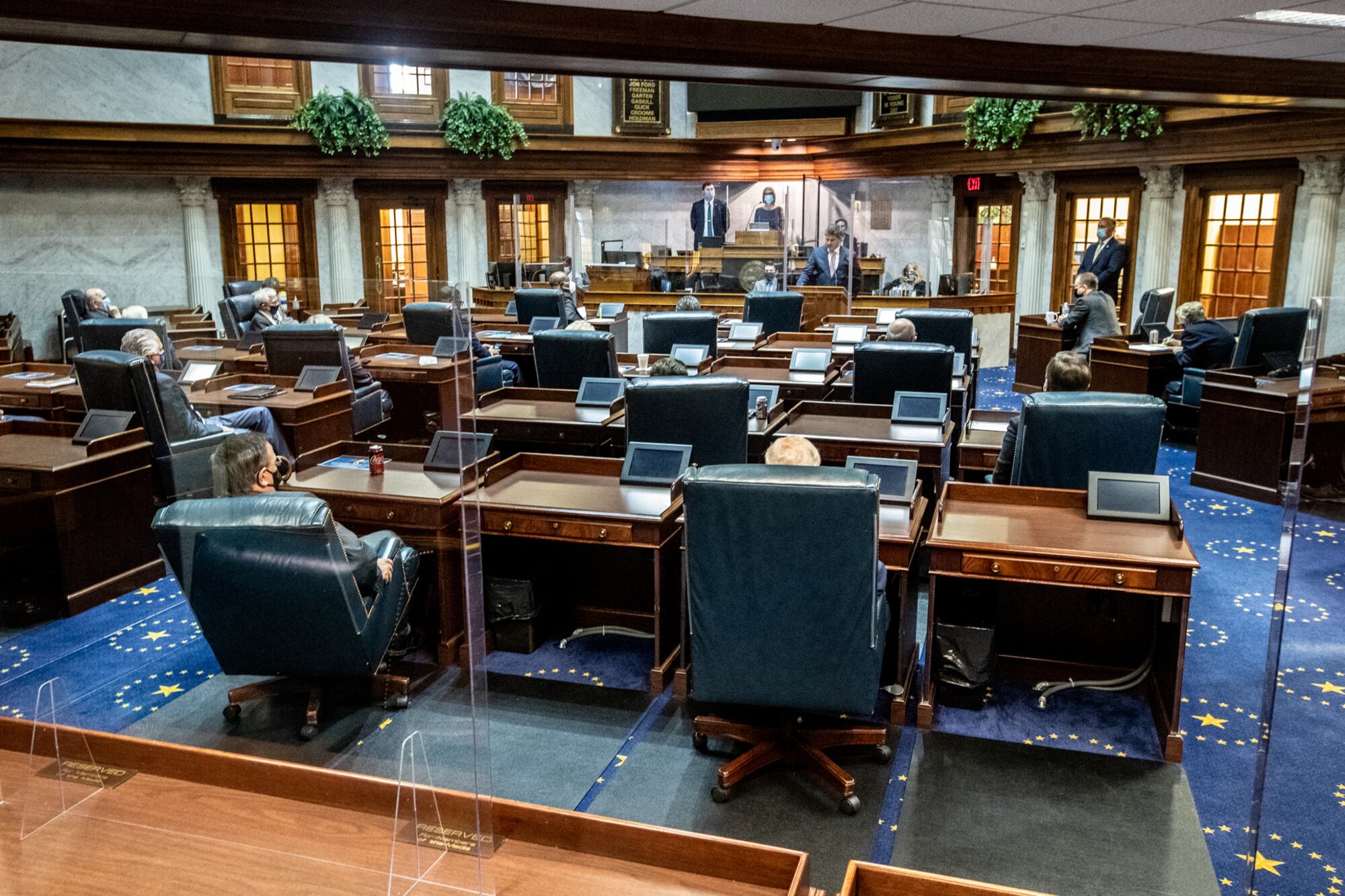Indiana’s 2023 legislative session is under way, and state legislators have introduced more than 100 new education bills and bills impacting schools and students. For the latest Indiana education news, sign up for Chalkbeat Indiana’s free newsletter here.
Hoosiers without legal U.S. residency may become eligible for in-state college tuition rates through a bipartisan bill currently under consideration by the legislature.
The students have had to pay out-of-state tuition instead of paying the lower in-state rates due to a 2011 law, and despite past efforts to change the policy.
This has left Indiana as just one of a few states that requires students lacking legal residency status to pay out-of-state tuition rates — often at a cost of many times the in-state rates — leaving college out of reach.
But lawmakers are trying once again to change that with Senate Bill 135, which would make students eligible for in-state rates if they have attended Indiana schools for four years and either graduated or received the equivalent of a high diploma.
The bipartisan bill would also require students to file an affidavit with their college stating that they will apply to legalize their immigration status as soon as the option is available.
The bill is authored by Republican Sens. Blake Doriot of Goshen and Linda Rogers of Granger, and Sen. David Niezgodski, a Democrat from South Bend.
Doriot said the bill would put Indiana in line with other states that make in-state tuition accessible to more students, like those who were brought to the United States as children, but who don’t qualify for temporary resident status as offered in the Deferred Action for Childhood Arrivals program. DACA recipients are currently eligible for in-state tuition at some Indiana public colleges, according to the Higher Ed Immigration Portal.
Doriot added that many of his constituents have lived in Indiana for a long time despite not having legal resident status, and that the cost of college leads students to give up on higher education.
Given its critical need for workers, the state should help students who want to go to college, Doriot said.
“This problem has come to us… not from what the state of Indiana has done, but what the federal government has failed to do. We haven’t been able to get together and find a clean pathway to citizenship,” Doriot said. “And we are addressing children, young adults, who want to further themselves and they’re here, and they can’t go home.”
“The bottom line is, this is just the right thing to do,” Niezgodski added.
SB 135 had its first hearing Wednesday to public support from community groups and higher education systems, including the American Civil Liberties Union of Indiana, Indiana Latino Institute, Stand For Children Indiana, and Ball State University.
Sen. J.D. Ford, a Democrat from Carmel, noted that at Purdue University, for example, in-state students paid around $10,000 per year in tuition, versus $28,800 for out-of-state students.
Rachel Santos, director of education policy at the Indiana Latino Institute, said Indiana is now just one of two states barring students without legal residency from accessing the less expensive in-state tuition rate. She added that the state’s Latino population is growing in large part due to immigration.
“This is not a handout. This is asking for a fair chance at earning an education,” Santos told lawmakers.
There were no amendments or votes on Wednesday. Chair Sen. Jeff Raatz said the committee would take up the matter next week.
Aleksandra Appleton covers Indiana education policy and writes about K-12 schools across the state. Contact her at aappleton@chalkbeat.org.






